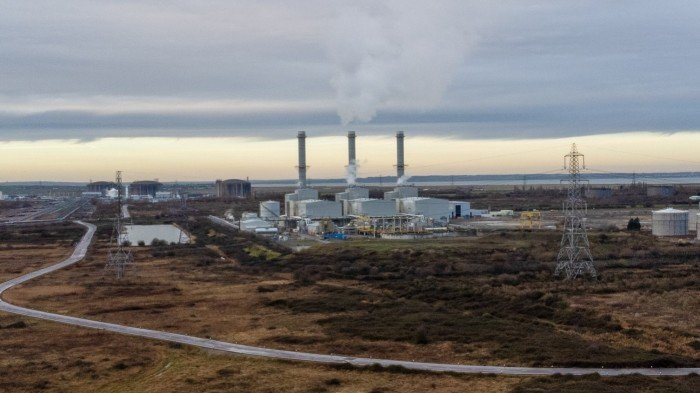Unlock the Editor’s Digest for free
Roula Khalaf, Editor of the FT, selects her favourite stories in this weekly newsletter.
If economic growth is the UK government’s “number one mission”, it could do no better than to address the country’s punishingly high electricity prices. Britain has the highest industrial electricity prices in the developed world, according to 2023 data from the International Energy Agency — and it has been near the top for some time. This means energy-intensive UK businesses struggle to retain competitiveness, start-ups have less to spend on scaling up and Britain’s attractiveness as an investment destination is damaged. Right now, a manufacturer setting up in the UK would pay almost four times more, per kilowatt-hour, than it would in the US. This is a significant factor in Britain’s feeble productivity growth.
Yet the UK is a world leader in green electricity generation. Last year it generated close to two-thirds of its power from low-carbon sources, well above the global average. Backed by renewable energy sources that have low generation costs, the UK’s electricity prices ought to be a lot lower. But like many nations, its electricity market operates a marginal pricing system: the wholesale price of electricity is determined by the cost of the most expensive power needed to meet demand at any given moment. That is often from plants fuelled by natural gas, a significant portion of which the UK imports at volatile international prices.
This leads to a frustrating situation where expensive gas plants determine the price of electricity the bulk of the time. In 2021, gas set the price of electricity 98 per cent of the time in the UK, compared with just 39 per cent across Europe on average, according to a UCL study. How can Britain ensure gas sets the price less often?
The long-term solution is to phase out gas use and expand renewable and nuclear generation. But the intermittent nature of wind and solar energy means gas will remain an important source until the UK generates all electricity from zero-carbon sources. In the interim, subsidies for industrial users could provide a reprieve, but are not fiscally sustainable. Instead, the government is better off focusing on efforts to modernise an energy system that was designed for the fossil fuel era.
First, the UK must make better use of renewables. The government’s long-term infrastructure strategy, which is being outlined this week, and its forthcoming industrial strategy will be important in guiding public and private investment towards green energy sources. Investing in the country’s poor grid infrastructure and storage technologies would lower the amount of time that costly gas plants are relied upon. Building more electricity links with Europe would also boost the system’s resilience.
Second, flexible power usage has an important role. Different tariff structures can incentivise retail and industrial customers to shift to off-peak times when electricity rates are lower. This can also reduce the outlays on expensive green infrastructure, which are often recouped in bills.
Finally, Britain could adjust its pricing formula. The government is mulling the use of zonal pricing, which would set prices according to the regional electricity mix. Another option worth exploring includes reverting to the pre-privatisation model of charging industry the long-run marginal costs of energy, as recommended by the economist Sir Dieter Helm.
New pricing models make sense in theory. But in practice any move to a new mechanism would require quick and clear execution, to avoid the effect of price uncertainty in dulling energy investment. Either way, the cleanest and most cost-effective way to bring down Britain’s energy prices is to pave the way for cheap, homegrown renewable energy sources to set them for much more of the time.
